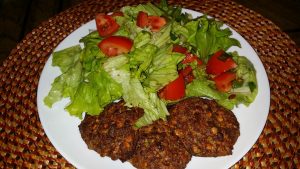Portal hypertension gets its name because it refers to a condition caused by an issue in the communication of the portal vein, which is responsible for sending blood from organs located in the abdomen to the liver through small vessels called sinusoids. The problem can cause several complications, including: hemorrhoids, esophageal varices, ascites, and an enlarged spleen, which leads to significant abdominal swelling. Many factors can lead to portal hypertension, but the main ones are cirrhosis and schistosomiasis. That’s why diagnosis is more common in liver patients.
Symptoms of Portal Hypertension
The symptoms of portal hypertension are not always easily identified, however, people who already have liver conditions or have had cirrhosis are at higher risk for developing the condition, and as their treatments progress, any changes in their body or symptoms that could indicate the presence of portal hypertension are monitored. The main symptoms include:
- Abdominal swelling;
- Vomiting blood;
- Dark stools with a strong odor;
- Swelling in feet and legs;
- Hemorrhoids;
- Esophageal varices
If the condition worsens, the patient may experience mental confusion and sudden fainting caused by toxins that have reached the brain due to the liver’s inability to properly filter the blood. This worsening can also occur with any other type of disease affecting the liver. Another characteristic symptom of portal hypertension, as well as other liver diseases, is jaundice, which causes the characteristic yellowing of the skin and eyes in patients with liver problems.
Diagnosis
In most cases, the hepatologist who handles the medical follow-up will identify portal hypertension through the symptoms reported by the patient, as well as evaluate their history of liver disease. During the consultation, they will look for evident symptoms such as abdominal swelling, swelling in the legs, and the occurrence of hemorrhoids or dilated veins. After the clinical evaluation, based on the full history and reported symptoms, some tests may be required to confirm and diagnose the condition. The necessary tests in these cases are laboratory ones such as endoscopy, X-ray, and blood tests.
Treatment of Portal Hypertension
Unfortunately, portal hypertension is a condition with no cure, but thanks to advances in medicine and several studies aimed at controlling the symptoms, it is possible to offer a better quality of life to diagnosed patients and to control the emergence of other complications. The main recommended treatments in this case are:
- High blood pressure medications – as medications that control blood pressure help reduce pressure in blood vessels, they naturally reduce the chances of varices rupturing in the esophagus as well as the development of hemorrhoids.
- Laxatives – Medications with laxative effects, such as lactulose, are recommended focusing on eliminating excess toxins and ammonia from the body, which helps prevent the worsening of the condition, like mental confusion and fainting.
- Endoscopic therapy – This is recommended to treat and prevent the rupture of varices in the esophagus.
- Surgical procedure – This is one of the last options in treatment and is usually considered when the patient does not respond well to medication-based treatments. In some cases, to reduce portal hypertension, correction of an abnormality in the liver’s blood circulation may be recommended, or even a liver transplant may be indicated or considered.
In addition to medication and therapy, specific health care is necessary for patients with portal hypertension, which helps control the disease and reduce the chances of worsening and liver complications. A healthy diet, rich in whole foods and low in fat, is essential, as is completely cutting out alcohol consumption, even socially. For treatment to be effective, it’s important to control other health conditions like diabetes and cholesterol and to keep regular medical appointments. Some tests may be requested for monitoring and even to adjust the medications prescribed for treatment. There is no time frame for finishing treatment and in most cases, patients need to follow treatment for their entire lives. While we’re talking about health, I’d like to share some news for our readers who are trying to get pregnant. In partnership with Famivita, we’ve developed a line of products specialized in health and fertility. Among them, we have the FamiFerti female fertility vitamins, the ViriFerti male fertility vitamin, ovulation tests, and the fertility-friendly lubricant gel FamiGel, which mimics cervical mucus, increases sperm motility and also enhances pleasure. You can find each of these products here in our online store.
Diet for a Patient with Portal Hypertension
Changing eating habits is essential and indispensable for treating a patient with portal hypertension, as well as for treating any other liver disease. Healthy eating helps with the liver’s cellular regeneration, allowing the organ to continue performing its function of converting food into energy as well as removing toxins from the body. The diet for patients with portal hypertension should be healthy, with easy-to-digest and fat-free foods.
- Grilled chicken, beef, and fish;
- Boiled or baked chicken without skin;
- Vegetables, preferably dark leafy greens;
- Vegetables in general;
- Fruits preferably peeled and cooked;
- Gelatins;
- Leafy salads in general.

Natural Treatment for Liver Diseases
There are many great alternatives and natural options to help in the treatment of liver problems, which help detoxify, reduce inflammation, and even regenerate liver cells. But we must state that none of these tips should be used as a substitute for medical treatment, and should be used only as a complementary approach for better results.
- Boldo tea;
- Milk thistle infusion;
- Artichoke
The natural tips above are excellent allies for liver health. They help eliminate toxins, have anti-inflammatory effects, protect and regenerate liver cells, aid digestion, have purifying properties, and also help control cholesterol and blood sugar levels. You can easily find them at farmer’s markets and natural products stores. Photo: LeonardoG











